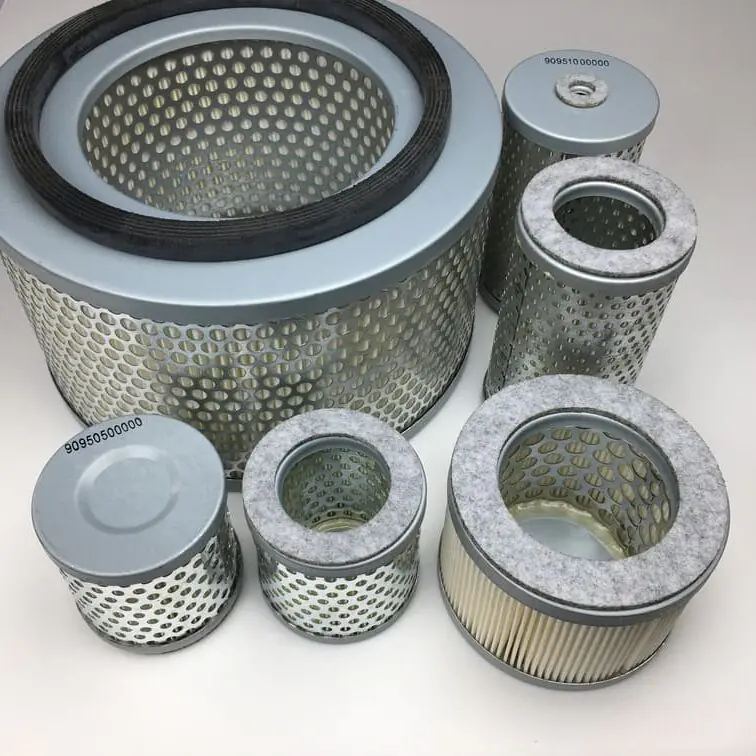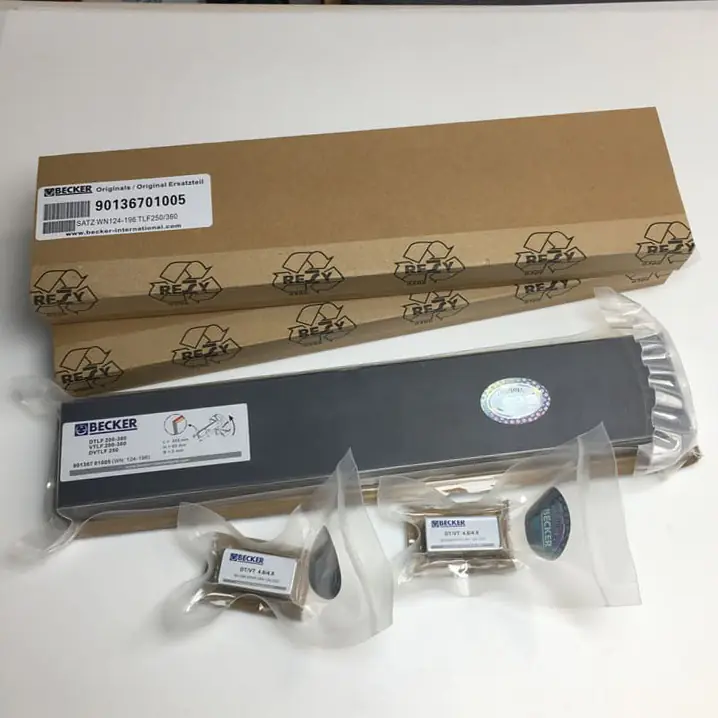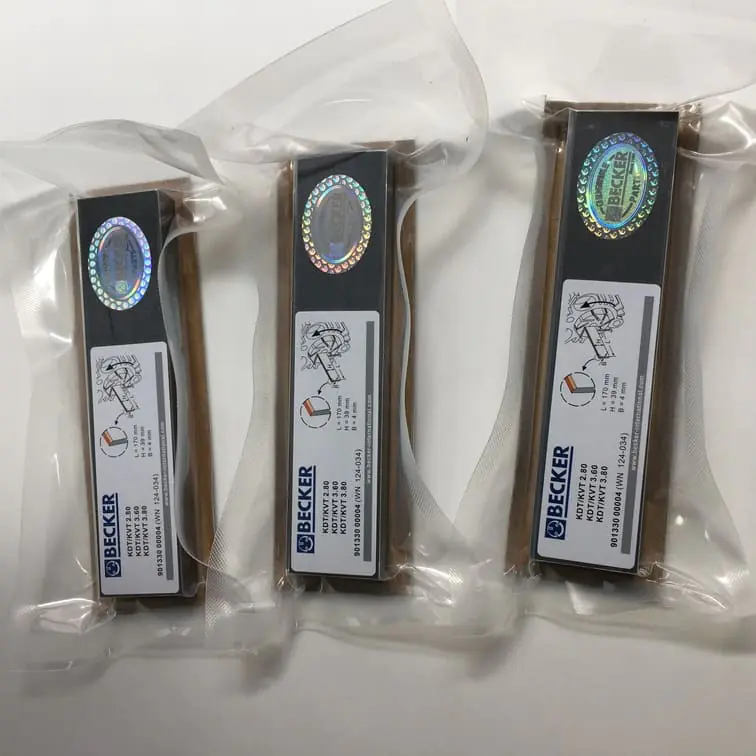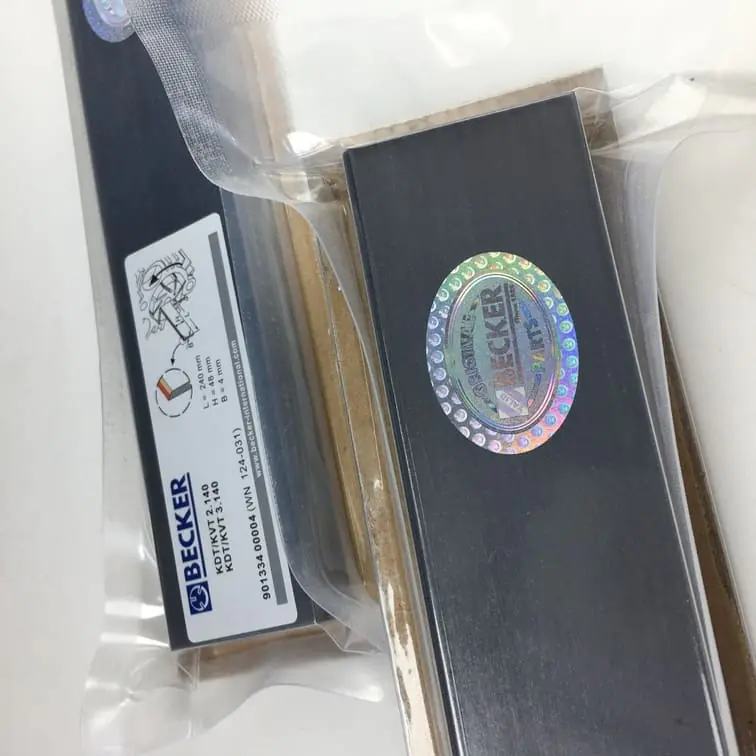How to Choose Vacuum Pump Oil
The importance of choosing the right vacuum pump oil cannot be overstated. Whether you’re in industrial applications or using vacuum pumps for food processing, the type of oil you use plays a pivotal role in the performance, longevity, and reliability of your pump. This guide will explore how to choose vacuum pump oil, touching upon factors such as oil type, viscosity, and vapor pressure, as well as providing insight into food-grade lubricants. Let’s make the task of choosing vacuum pump oil a straightforward process.
What is Vacuum Pump Oil?
Vacuum pump oil is a specialized lubricant designed to reduce friction, carry away contaminants, and seal components within a vacuum pump. The correct vacuum pump oil minimizes wear, improves efficiency, and ensures the pump operates within the desired vacuum level.
There are different types of vacuum pump oils, each suited for particular applications. The most common varieties include:
- Mineral Oil: Typically used for standard applications. Mineral oil offers reliable lubrication at a reasonable cost.
- Synthetic Oil: Designed for extreme conditions. Synthetic oils provide better stability at high temperatures and have a longer lifespan.
- Silicone Oil: Best for high-temperature applications and situations requiring chemical resistance.
| Type of Oil | Features | Best For |
|---|---|---|
| Mineral Oil | Cost-effective, versatile | Standard industrial use |
| Synthetic Oil | High thermal stability | High-temperature environments |
| Silicone Oil | Chemically resistant | Special applications |
Choosing the right oil type depends on the specific needs of your vacuum pump and its intended use.
Key Factors to Consider When Choosing Vacuum Pump Oil
1. Viscosity
Viscosity is one of the most important properties to consider when choosing vacuum pump oil. Viscosity refers to the thickness of the oil and its ability to flow under different temperature conditions. In a vacuum pump, the correct viscosity is essential for ensuring proper lubrication and sealing.
- Low Viscosity: Oils with lower viscosity are better for pumps that operate in colder environments or where less drag is desired.
- High Viscosity: Oils with higher viscosity are suitable for pumps that run at higher temperatures, as they provide a more robust protective film between moving parts.
The right viscosity helps ensure smooth operation, minimizes wear, and helps maintain the desired vacuum level. For many industrial applications, standard vacuum pump oils with a viscosity grade between ISO 68 and ISO 100 work effectively.
2. Vapor Pressure
Vapor pressure is another critical property to consider. Vapor pressure refers to the tendency of a liquid to evaporate. In vacuum pump oils, you want a low vapor pressure to minimize the possibility of the oil turning into vapor, which can contaminate the vacuum environment.
- Low Vapor Pressure: The lower the vapor pressure, the better the oil performs in maintaining the vacuum. Low vapor pressure oils prevent vapor contamination and ensure that the vacuum level remains stable.
If your application requires maintaining a high vacuum level, it is crucial to use an oil specifically designed with triple-distilled pump oil technology, which guarantees ultra-low vapor pressure.
3. Compatibility with Vacuum Pump Type
Not all vacuum pump oils are compatible with every type of vacuum pump. Rotary vane pumps, diffusion pumps, and scroll pumps all have unique requirements when it comes to the oil they use.
- Rotary Vane Pumps: Generally require a good-quality mineral oil or synthetic oil. They rely heavily on the oil for both lubrication and sealing.
- Diffusion Pumps: Require specialized high-vapor-pressure oils to ensure optimal performance.
- Scroll Pumps: Usually oil-free, but in cases where lubrication is needed, a specific type of light synthetic oil is often recommended.
Before selecting an oil, always check your pump’s manufacturer’s recommendations to ensure compatibility.
Different Types of Vacuum Pump Oils and Their Applications
Mineral Oil
Mineral oil is the most common type of vacuum pump oil and is typically derived from crude oil through refining. It is widely used for standard applications due to its cost-effectiveness and reasonable performance.
- Advantages: Cost-effective, easily available, versatile.
- Best For: General-purpose applications, including light-duty vacuum processes.
For example, mineral oils are commonly used in rotary vane vacuum pumps that do not encounter extreme operational environments. They offer good performance for low to medium vacuum levels, making them ideal for standard industrial applications.
Synthetic Oil
Synthetic oils are engineered to handle more demanding conditions. They can withstand high temperatures without breaking down and provide better chemical stability.
- Advantages: Superior thermal and oxidative stability, long service life.
- Best For: High-temperature, high-stress environments where mineral oils may not suffice.
If your vacuum pump operates in extreme conditions—such as continuous high temperatures or exposure to corrosive gases—synthetic oil might be the best choice. These oils maintain their viscosity and effectiveness even in tough environments.
Food Grade Lubricants
For applications involving food processing, it is critical to use food-grade lubricants. These oils must meet strict health and safety standards to prevent contamination.
- Advantages: Safe for incidental food contact, meets health regulations.
- Best For: Vacuum pumps used in food processing and pharmaceutical industries.
Look for NSF H1 certified lubricants, which are specifically designed for situations where there might be incidental contact with food. These oils are formulated to provide effective lubrication while ensuring safety standards are met.
Why Vapor Pressure Matters in Choosing Vacuum Pump Oil
Understanding Vapor Pressure in Vacuum Pump Oils
Vapor pressure is a measure of a liquid’s tendency to evaporate. In vacuum systems, having an oil with low vapor pressure is essential because it minimizes contamination risks and keeps the vacuum environment stable.
A high vapor pressure oil can lead to increased oil vapor in the vacuum chamber, which can compromise the efficiency of the vacuum system and contaminate the process. This is particularly crucial in sensitive applications such as semiconductor manufacturing or medical processes, where any contamination can lead to significant problems.
Choosing the Right Vapor Pressure
When choosing vacuum pump oil, consider the following for vapor pressure:
- Applications requiring high vacuum: For these situations, oils with triple-distilled properties are recommended. They have extremely low vapor pressures, ensuring that the vacuum remains stable and uncontaminated.
- Standard Applications: In less sensitive environments, standard mineral oils with slightly higher vapor pressures can suffice.
For many high-vacuum applications, selecting an oil with ultra-low vapor pressure helps maintain operational efficiency and extends the lifespan of the vacuum pump.
Food Grade Vacuum Pump Oils and Their Importance
Ensuring Safety in Food Processing Applications
When vacuum pumps are used in food processing or pharmaceutical industries, the type of oil used must comply with safety standards. Food grade vacuum pump oils are designed to ensure there is no risk of contamination.
Key Characteristics of Food Grade Vacuum Pump Oils:
- Non-toxic: Safe for incidental contact with food products.
- Chemically Stable: Formulated to resist breaking down or forming harmful by-products.
- Odorless and Tasteless: Does not impart any flavors or smells to food products.
Using the right food-grade vacuum pump oil guarantees compliance with industry standards and helps maintain the safety of products that are being processed.
NSF H1 Certification
Most food-grade oils are NSF H1 certified, which means they are safe for incidental contact with food. They provide effective lubrication while ensuring that the vacuum environment remains uncontaminated. This type of oil is typically used in packaging machinery, food extrusion processes, and other food-handling equipment.
Maintaining Desired Vacuum Levels with the Right Oil
The Relationship Between Oil Quality and Vacuum Levels
The ability of a vacuum pump to achieve and maintain the desired vacuum level is directly related to the quality and type of oil used. The oil acts as a sealant, helping to eliminate small leaks and maintaining the integrity of the vacuum.
- High-Quality Oils: Using high-quality oils ensures that there is minimal outgassing, which could otherwise compromise vacuum levels.
- Oil Changes: Regular oil changes are essential to maintaining vacuum integrity. As oil ages, it can degrade, leading to increased vapor pressure and a reduction in overall vacuum performance.
Regular maintenance, including checking the viscosity and vapor pressure of your oil, will help keep the vacuum level where it needs to be for optimal performance.
Extending Pump Life with Proper Oil Selection
Choosing the right oil not only helps maintain vacuum levels but also significantly extends the life of the pump. The right oil reduces wear on moving parts, prevents overheating, and minimizes buildup of contaminants inside the pump.
Tips for Extending Pump Life:
- Use Manufacturer-Approved Oils: Always use oils that are recommended by your pump’s manufacturer.
- Monitor Oil Quality: Regularly check oil color and viscosity to ensure it’s not breaking down or contaminated.
- Schedule Regular Oil Changes: Follow a consistent oil change schedule to avoid wear and tear on pump components.
FAQs
1. What is the best oil for rotary vane vacuum pumps?
Mineral oil is generally the best choice for rotary vane vacuum pumps, especially for general-purpose applications. For more demanding environments, synthetic oils may provide better stability and longer service life.
2. Why is viscosity important in vacuum pump oil?
Viscosity determines how well the oil can provide lubrication and maintain seals under various temperature conditions. Choosing the correct viscosity ensures optimal performance and reduces wear in your pump.
Conclusion
Choosing the right vacuum pump oil is essential for ensuring your vacuum pump operates efficiently, reliably, and for as long as possible. Whether you use mineral oil, synthetic oil, or food-grade lubricants, understanding factors like viscosity, vapor pressure, and chemical compatibility is key to making the best decision for your specific application. Proper oil maintenance, including regular checks and timely changes, will help keep your vacuum pump in top condition, extend its lifespan, and maintain optimal performance. Investing in high-quality oil and following best practices will ultimately save you time, money, and potential downtime, ensuring your vacuum system functions at its best.




